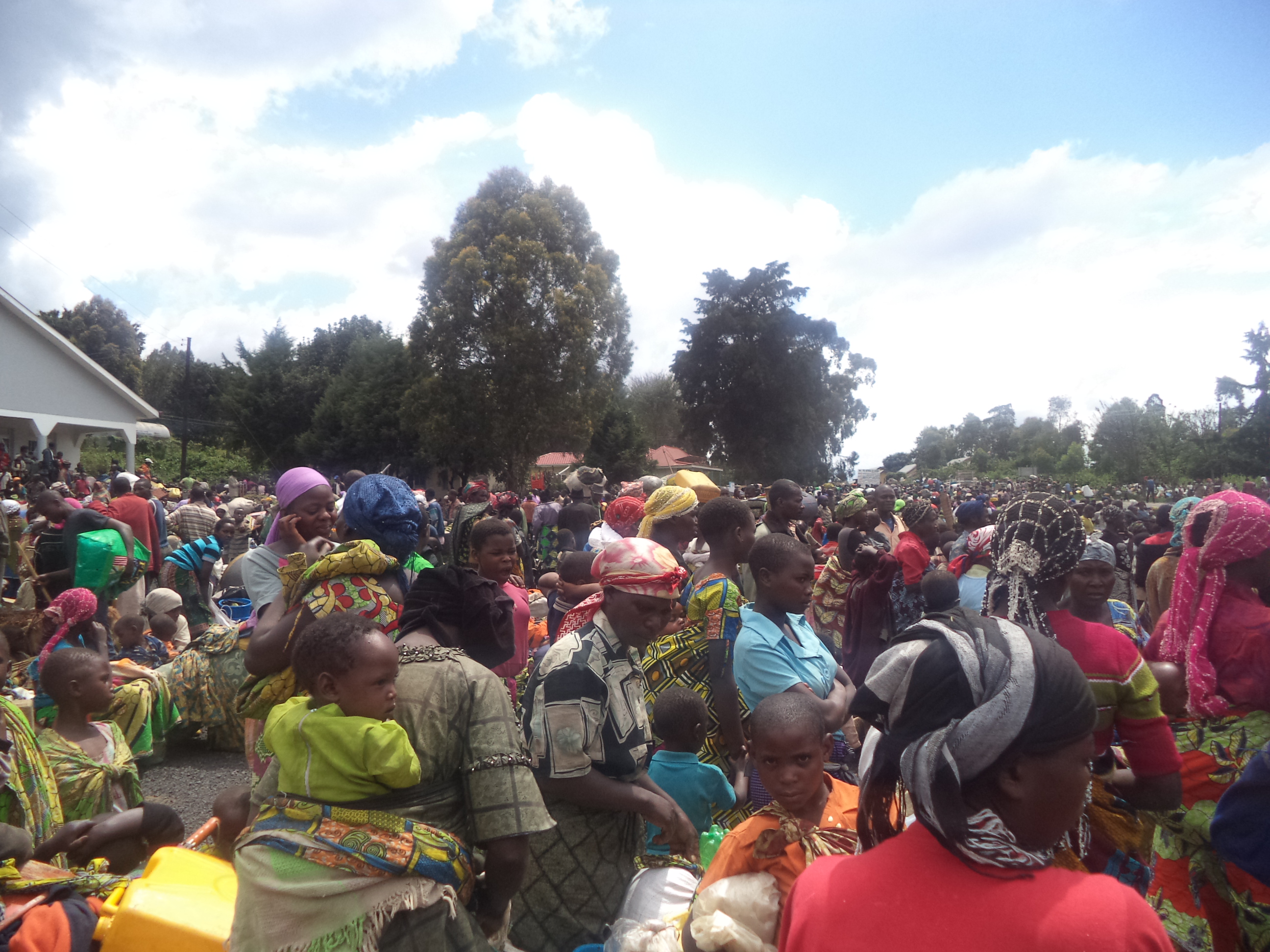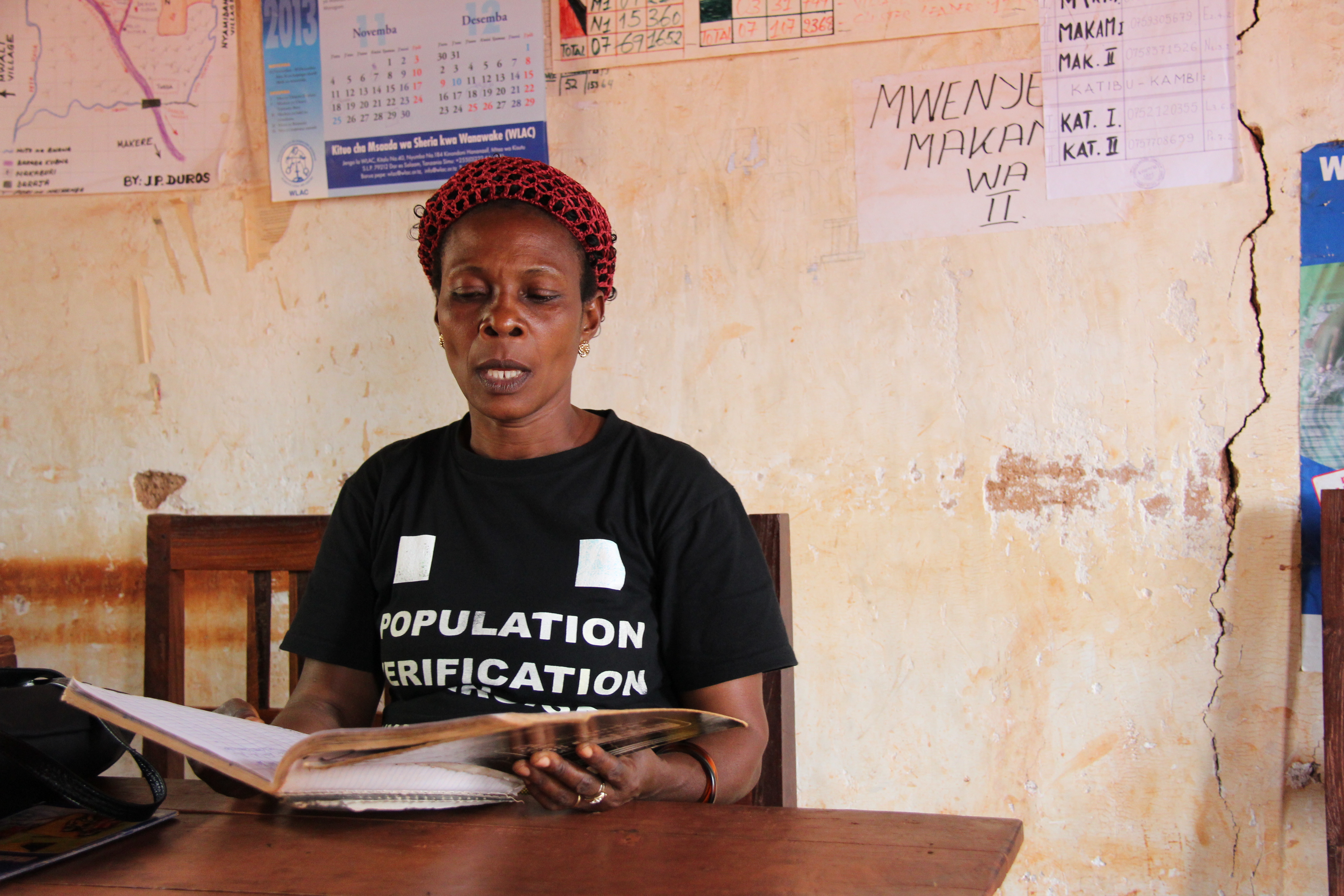UNHCR monitors returns to North Kivu from Uganda, prepares to help returnees
UNHCR monitors returns to North Kivu from Uganda, prepares to help returnees

BUNAGANA, Uganda, November 1 (UNHCR) - The UN refugee agency continues to respond to the latest inflows of Congolese refugees to southern Uganda as it prepares to assist people to return home in areas liberated from rebel control across the border in Democratic Republic of the Congo's (DRC) North Kivu province.
More than 10,000 people fled to Uganda's Kisoro district after the latest wave of fighting between the DRC armed forces and the M23 rebel movement began on October 25, more than 18 months after the two sides first started fighting.
The government has enjoyed spectacular success, ousting the M23 from strongholds in North Kivu, including the Bunagana crossing with Uganda, across which the refugees flowed. UNHCR has transported more than 3,000 to the Nyakabande Transit Centre, about 20 kilometres from the border, where they receive shelter, food and other aid.
Several thousand more remained in the border area and UNHCR has seen many return to North Kivu since the army captured the town on Wednesday afternoon. On Friday, the border was much calmer although there were some arrivals from Lunyonyi, where sporadic fighting continues.
A number of people returned to DRC this morning after crossing to Uganda on Thursday to spend the night. If the situation in Bunagana and elsewhere in North Kivu continues to stabilize in coming days, UNHCR expects most people to return.
UNHCR staff in the North Kivu capital, Goma, have not been able to access liberated areas yet, but the apparent collapse of the M23 offers hope that the refugee agency will soon be able to directly reach people in areas that have been off limits since the M23 took up arms against the Congolese military in April last year for allegedly failing to implement the terms of an earlier peace accord.
Once full military control and civilian authority is established, the repatriation of tens of thousands of forcibly displaced people could become a reality after more than 18 months of stop-start heavy combat in North Kivu.
While expressing caution about the current situation, and an eventual return from other countries, UNHCR Regional Representative Stefano Severe, said: "UNHCR is indeed ready to receive and accompany returnees once the situation has stabilized."
He and other UNHCR staff warned against premature returns until the situation is safe.
Severe said UNHCR had set up a small task force to address the immediate situation and today in Goma, UNHCR staff were meeting with UN and other partners to discuss how to deal with the new developments and help people of concern as quickly as possible.
Moreover, UNHCR works with implementing partners who ensure that the organization has a network and a presence in the deep field. But UNHCR believes that a political solution will be vital for significant returns and that any major population movement back must be voluntary in nature, and that the displaced can return in safety and dignity.
Assessment missions will be essential and humanitarian aid organizations such as UNHCR will need assurances of unhindered and free access to areas where people need UNHCR protection and assistance. This will require the presence of a disciplined military.
But in a province where there are believed to still be more than 30 armed groups, much remains to be done to bring lasting peace and solutions to eastern DRC.
Meanwhile, Uganda is also responding to a second displacement crisis in the north-west last month that saw up to 4,000 people flee from DRC's Orientale province to the Koboko district to escape attacks by a little known group called M18. Earlier this year, tens of thousands had fled from North Kivu to Uganda's Bundibugyo district to escape attacks from a Ugandan rebel group, the Allied Democratic Forces.








